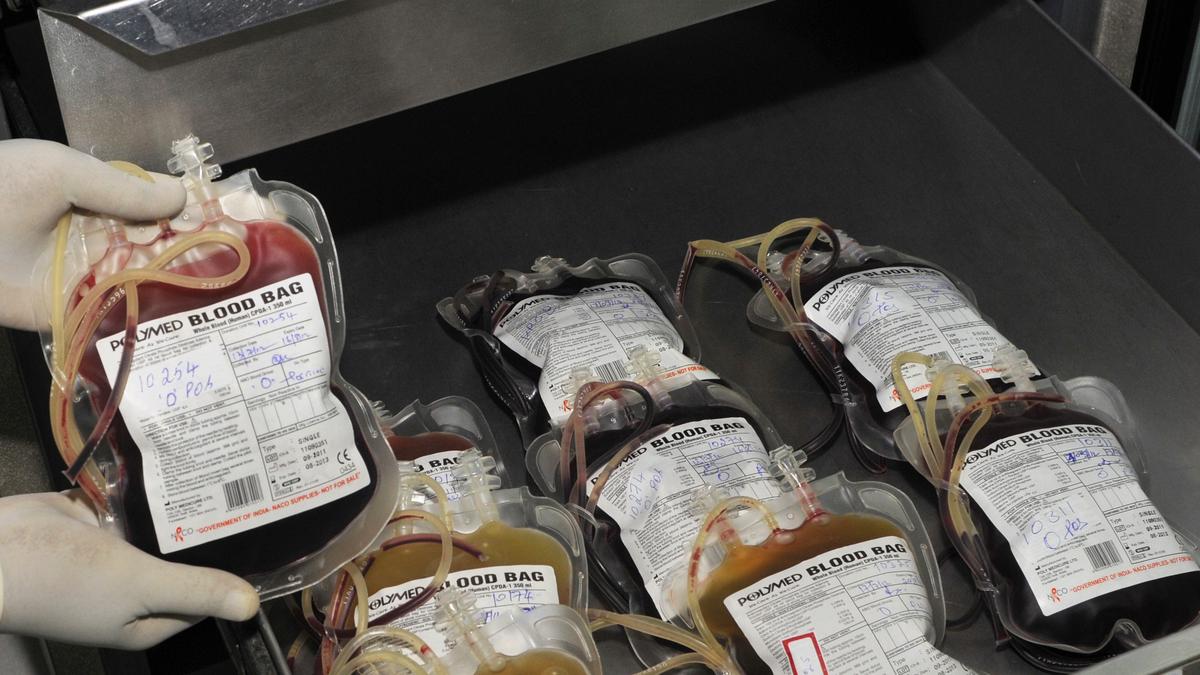
Karnataka launches its first rare blood donor programme
The Hindu
Rotary Bangalore TTK Blood Centre launches 'Rare Blood Donor' programme to support patients with rare blood groups.
To support the blood requirements of patients with rare blood groups, Rotary Bangalore TTK Blood Centre’s Bangalore Medical Services Trust (BMST), in association with the Karnataka State Blood Transfusion Council, on Tuesday launched a ‘Rare Blood Donor’ programme.
Under the programme, BMST is forming a ‘Rare Blood Donor’ registry, a database of voluntary donors of rare blood groups and a repository of frozen red cell units of rare blood types. Health Minister Dinesh Gundu Rao launched the programme on the occasion of the National Voluntary Blood Donation Day that is observed on October 1.
This programme has technical expertise and support from the National Institute of Immunohematology (NIIH) ICMR Mumbai, New York Blood Center, U.S., and the International Society of Blood Transfusion, (ISBT, Amsterdam). “The programme includes training and awareness for blood centres across Karnataka about rare blood groups. We will perform extended blood group testing by both serology and molecular techniques to identify rare blood types among patients and their family members,” Latha Jagannathan, medical director and managing trustee Rotary Bangalore TTK Blood Centre, BMST, told The Hindu after the launch.
Pointing out that testing of 500 individuals has been done and 60 donors have been enrolled under the registry so far, Dr. Latha said, “We will also identify rare group individuals from amongst our voluntary donors and share the anonymised data (without name, phone and other identifying data) of the potential donors with the International Rare Donor Panel. Apart from Mumbai’s ICMR centre, ours is the only such centre that has started this rare blood donor registry.”
Ankit Mathur, BMST additional medical director, said as of now 45 blood group systems have been identified. “Of these ABO and Rh (Rhesus factor) belong to the major blood group system. For transfusion, blood units of the same ABO and RhD (Rhesus factor D) are cross-matched with the patient’s blood sample and compatible blood is transfused. This is adequate for routine blood transfusions,” he said.
“Amongst the other blood group systems, some are called rare blood groups as their incidence is less than one in 1,000 to one in 10,000 people or more. Some examples of rare blood groups are Bombay (Oh) phenotype, Rh-D-/-D- (called Rh D dash dash), In (a+b-), Co(a-b-), CdE/CdE, Mg, weaker variants of A, B, O and Rh antigens, among other. These can be clinically significant and play an adverse role in certain conditions,” Dr. Mathur explained.
Dr. Janannathan said patients with thalassemia, cancer and other such conditions with rare blood groups who receive multiple transfusions, would need more precisely matched blood for transfusion.

Describing the Special Intensive Revision (SIR) drive under way in Bihar as “an invasive reconstruction of the electoral roll,” Dipankar Bhattacharya, general secretary of the Communist Party of India (Marxist-Leninist) Liberation, said States including Kerala should be on guard as it could be applied in other parts of the country as well.





















 Run 3 Space | Play Space Running Game
Run 3 Space | Play Space Running Game Traffic Jam 3D | Online Racing Game
Traffic Jam 3D | Online Racing Game Duck Hunt | Play Old Classic Game
Duck Hunt | Play Old Classic Game










